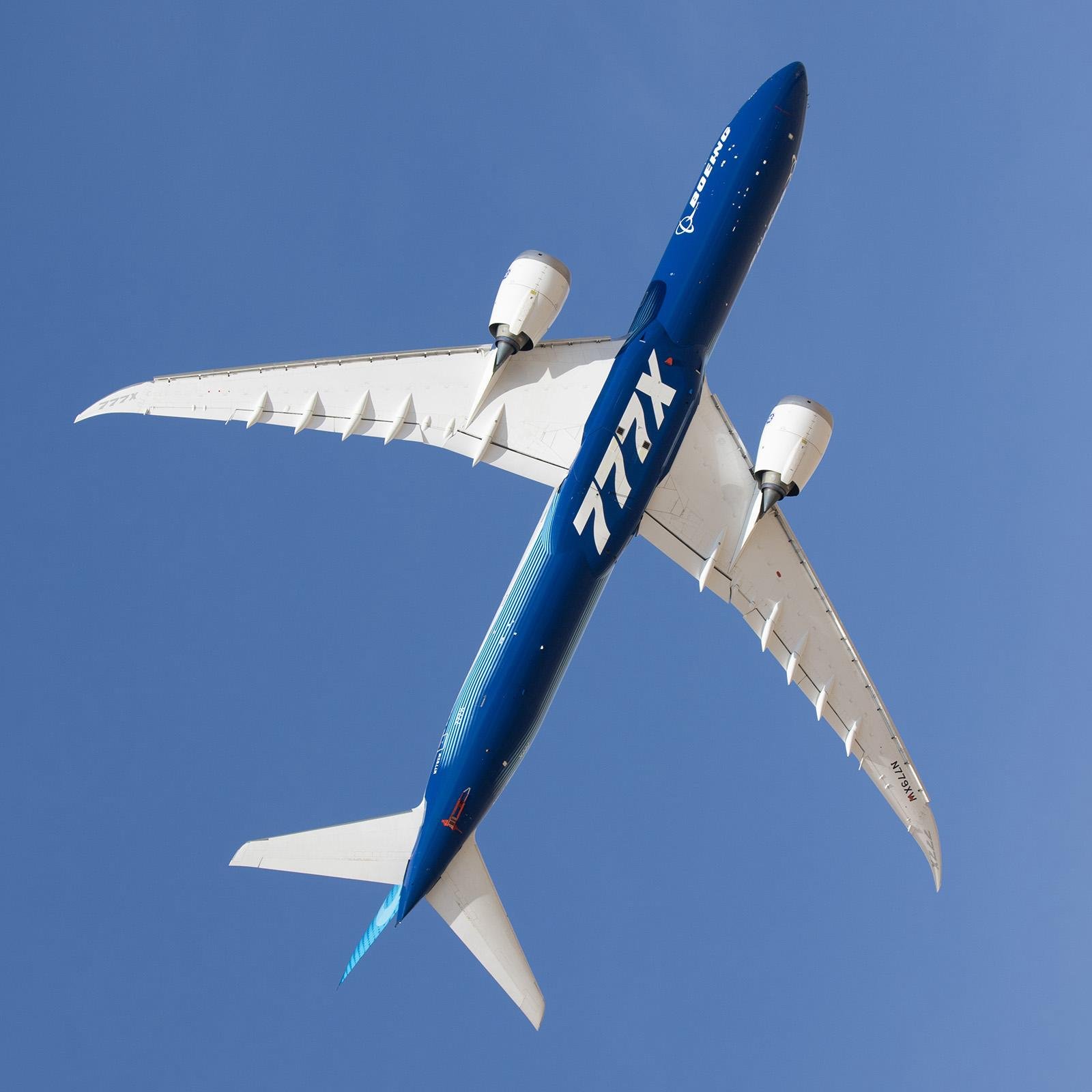
DUBAI—Amid growing hopes of beginning the long-delayed certification effort for its 777-9 flagship, Boeing is providing initial details of how the process will be structured.
The 777-9, which is making its second appearance at the Dubai Airshow, is targeted at entry-into-service in 2025 having endured several sizable delays. Issues during early flight trials and increased regulatory scrutiny have held back type inspection authorization (TIA) from the FAA—a move that will mark the formal start of certification.
Although the FAA will not grant TIA until it is confident the airplane is ready and Boeing has addressed all design and system safety assurance questions, Boeing Commercial Airplanes President Stan Deal tells Aviation Week that the milestone is approaching. “I anticipate shortly we’ll be at the first phase of type inspection authorization on the airplane and getting the FAA and eventually [the European Union Aviation agency] on for score for all those test cards we’ve been flying,” Deal says.
“We’re over 1,100 flights on the program already and 3,200 [flight] hours, so we’ve we put more time on this airframe and engine combination than any other airplane in history [in terms of Boeing pre-certification flight tests]. The performance is looking good in terms of the fuel burn and system functionality,” Deal says.
“It’s super exciting that we're getting to that point in the program,” says Heather Ross, project pilot for the 777X and lead pilot for WH001, the first development aircraft which is in the flight display here at Dubai. The aircraft was used earlier this year to complete company testing of takeoff performance and velocity minimum unstick (VMU) evaluations, a campaign which determines the minimum takeoff speeds for a new aircraft.
“VMU testing was a big step. We also completed some brake testing—we've got a little bit more tuning to go but that's all kind of progressing at pace. We've also got some other stability and control (S&C) testing as we evolve the flight control laws and as we make some changes we’ll go out and re-do that phase,” she adds. “The whole program is involved in focusing on trying to get some of those safety assessment reviews completed and the paperwork closed out so that we can document it—then we can work through completing the remaining items before TIA.”
While the additional S&C work will be undertaken by the second test aircraft, WH002, the brunt of the certification effort will be performed by the third test aircraft, WH003, which originally joined the program in August 2020. “That is really our engine and steady state performance airplane,” Ross says. “They're getting ready, and they'll be the first up when we do get TIA because that's the majority of the work that the initial certification is going to take place on. So they’re getting spooled up ready to go.”
“WH003 has got propulsion testing, so they’re going to have the most up-to-date software and hardware on that airplane, so they'll be first in the barrel as it were for the certification effort,” Ross adds. The aircraft will be configured with the production standard GE9X engine with an updated combustor liner, which has been upgraded to counter issues encountered a year ago. “One engine issue we found through the test program on the combustor liner, which GE Aerospace has got well in hand,” Deal adds.
The third aircraft has been used primarily to evaluate flight loads and performance of the auxiliary power unit, avionics and the GE9X engines. WH001, which first flew in January 2020, has taken the lead in testing S&C as well as high and low-speed aerodynamics. It has also been used for avionics, flight control systems and brake tests. The second aircraft—the entry of which into the program was also delayed until April 2020 by coronavirus-related precautions—was mainly targeted at autoland system work as well as ground effects testing.
A fourth aircraft, WH004, which is currently stored, incorporates a production-representative cabin configuration, and will ultimately finish its test role with a phase of extended twin-engine operations (ETOPS) and airline-like functionality and reliability operations testing.





